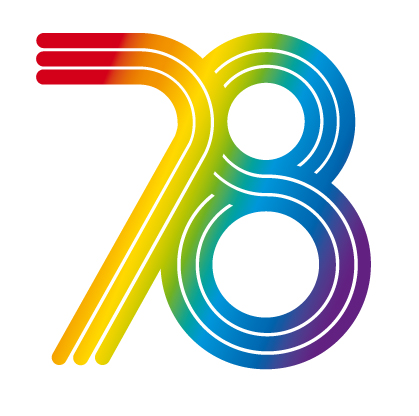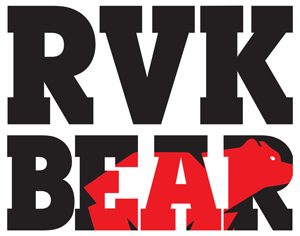
Until the 1970s lesbians and gay men were practically invisible in Icelandic society which surrounded them with contempt and massive silence. Their reaction was either to hide their sexual identity completely, finding an occasional escape from the oppression while touring abroad, or to move to the metropolitan cities of continental Europe and Northern America. Many of those people never turned back, being later properly termed as sexual political refugees.
The silence was first broken in 1975 when the first gay man revealed his sexual identity publicly in the media, influenced by the international liberation movement, and in 1978Samtokin 78 - The National Queer Association of Iceland, was founded by some twenty people. It is now, twenty five years later, the most powerful force in the gay liberation movement of Iceland with a little less than 400 members, working with financial support from the Icelandic state and the city of Reykjavík.
"Everyone is welcome - except gays and lesbians."
To describe the prejudice and hostility which met the little group on its way to visibility in these years, one recalls a discotheque in Reykjavík which in 1983 sought its popularity by advertising in newspapers: "Everyone is welcome - except gays and lesbians." Another example from the same year took place in the Nursing School of Iceland which forbade its students to call for a meeting with the educational group of Samtökin ´78, a visit which the students themselves had organised after a gay student found himself forced to leave the school due to group mobbing.
Nevertheless, the few who had the courage to stand up and speak for their cause, saw a remarkable progress in the eighties. They rejected for instance the oppression of the Icelandic language, that stern ruler of thoughts and emotions, by protesting people´s use of the common word "kynvilla" (sexual aberration) for homosexuality, a term analogous to the older word "trúvilla" (religious aberration) for heresy. They fought for a decade with the Icelandic State Radio against being labelled in such a derogatory manner, and suggested their own popular words, "lesbía" and "hommi" for themselves, and "samkynhneigð", a compound of same, sex and orientation, for homosexuality. And finally they won.
Gay activism in Iceland
Since then educational and legislative work has charaterised the gay activism in Iceland with positive results, and recently several other gay associations have appeared, e.g. FSS, the Association of Lesbian, Gay and Bisexual University Students, founded in 1999. In 1983 a new political party, The Socialdemocratic Alliance, was the first one of its kind to place gay human rights on its agenda and in 1985 a resolution was presented in the parliament, Althingi, by four political parties demanding action to abolish discrimination against lesbians and gay men. It was never passed, and it was not until 1992 that a similar resolution was rewoked by five political parties and passed by the Althingi.
As a result of the research work ordered by this resolution, a law on registered partnership for same-sex couples was passed by the Althingi in 1996, though denying same-sex couples any right to adopt children and seek insemination in an official clinic: However, by this law Iceland, as the first country in the world, legalised joint custody of children brought into same-sex partnerships. Furthermore the protestant lutheran state church did not formally approve of a blessing ceremony, as the gay movement demanded, causing friction and open fight with the church which still is unsolved. In the year 2000 the Althingi revised the law on registered partnership, giving same-sex couples the right to adopt stepchildren brought into such partnerships. Furthermore, in 1996 the Althingi passed an anti-discrimination law. It is worth notifying that the parliamentary opposition in the debate preceding these legislative improvements has been minimal compared to the parliamentary opposition in other nordic countries, and to give a clear example of an organised opposition one has to go as far as to Christian fundamentalist congregations, functioning outside the state church of Iceland.
Changing society
Opinion polls show a surprising change of values in society and express in fact more respect and tolerance towards gay men and lesbians than in most other western societies. When asked by an international opinion survey in 1990 to what extend certain acts were justifiable on the scale 1-10, the Icelanders expressed more tolerance than other nations when asked about homosexuality, showing the average of 5.5. Other nations placed themselves around 4.7 on the average, with USA down at 3.0. An international opinion survey of same kind from 1984 gave Iceland the average rate of 3.3. (Stefán Ólafsson: Lífsskoðun í nútímaþjóðfélögum. Reykjavík: Félagsvísindastofnun, 1991). A Gallup opinion survey in February 2000 showed that 53% supported lesbians´ and gay men´s right to adopt children, 12% declared their neutrality here and 35% were against the right to adopt. The change is generally affirmed by what lesbians and gay men experience in their everyday life. In a surprisingly short period of time the Icelandic society has left its homophobic attitude of the past and opened up for new visions and ideas, as the annual Gay Pride events clearly reflect in Reykjavík - gathering more than 25.000 participants at the festivities in the center of town in August 2002.
© Thorvaldur Kristinsson 2003. Thorvaldur Kristinsson is a former chairman of Samtokin 78 - The National Queer Association

